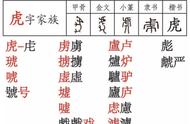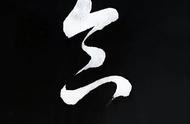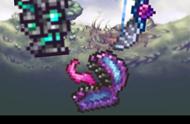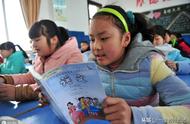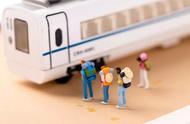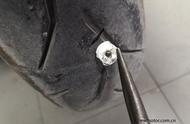核心词汇:
1. peak /piːk/ (n.) 最高点、高峰
2. dusk /dʌsk/ (n.) 黄昏
3. shiver /ˈʃɪvər/ (v.) 发抖
4. condense /kənˈdens/ (v.) 使(液体)浓缩
5. oar /ɔːr/ (n.) 桨;橹
6. phosphorescence /ˌfɑːsfəˈresns/ (n.) 磷光
7. fathom /ˈfæðəm/ (n.) 英寻(测量水深单位,合1.8米或6英尺)
8. congregate /ˈkɑːŋɡrɪɡeɪt/ (v.) 聚集;集合
9. steep /stiːp/ (adj.) 陡峭的;大起大落的
10. concentration /ˌkɑːnsnˈtreɪʃn/ (n.) 聚集;集中;汇集
11. tremble /ˈtrembl/ (v.) 颤抖;发抖
12. principal /ˈprɪnsəpl/ (adj.) 最重要的
13. delicate /ˈdelɪkət/ (adj.) 脆弱的;娇嫩的

核心短语:
1. dream about/of sth. 梦到;梦想
2. no longer 不再;再也不
3. put sth. on 穿;戴
4. thole pin 桨栓;桨架
5. head for 朝...方向走去
6. feed off/on sth. 因…而增长;利用…取得成功(或优势)
7. be fond of 喜爱,喜欢

正文
He was asleep in a short time and he dreamed of Africa when he was a boy and the long golden beaches and the white beaches, so white they hurt your eyes, and the high capes (岬;海角) and the great brown (棕色的) mountains.
He lived along that coast now every night and in his dreams, he heard the surf (浪花) roar (咆哮) and saw the native boats come riding through it.
He smelled the tar (沥青) and oakum (填絮, 用于填塞船缝等) of the deck (甲板) as he slept and he smelled the smell of Africa that the land breeze (微风) brought at morning.
Usually when he smelled the land breeze he woke up and dressed to go and wake the boy.
But tonight the smell of the land breeze came very early and he knew it was too early in his dream and went on dreaming to see the white peaks (高峰) of the Islands rising from the sea and then he dreamed of the different harbours (海港) and roadsteads (锚泊地;碇泊处) of the Canary Islands (加那利群岛,属西班牙).

He no longer dreamed of storms, nor of women, nor of great occurrences (遭遇), nor of great fish, nor fights, nor contests of strength, nor of his wife.
He only dreamed of places now and of the lions on the beach. They played like young cats in the dusk (黄昏) and he loved them as he loved the boy. He never dreamed about the boy.
He simply woke, looked out the open door at the moon and unrolled his trousers and put them on. He urinated (小解) outside the shack (小屋) and then went up the road to wake the boy.
He was shivering (发抖) with the morning cold. But he knew he would shiver himself warm and that soon he would be rowing (划船).
The door of the house where the boy lived was unlocked and he opened it and walked in quietly with his bare feet.
The boy was asleep on a cot (折叠床) in the first room and the old man could see him clearly with the light that came in from the dying moon.
He took hold of one foot gently and held it until the boy woke and turned and looked at him. The old man nodded (点头) and the boy took his trousers from the chair by the bed and, sitting on the bed, pulled them on.
The old man went out the door and the boy came after him. He was sleepy and the old man put his arm across his shoulders and said, “I am sorry.”
“Qua Va,” the boy said. “It is what a man must do.”

They walked down the road to the old man’s shack and all along the road, in the dark, barefoot men were moving, carrying the masts (船桅) of their boats.
When they reached the old man’s shack the boy took the rolls of line in the basket and the harpoon and gaff and the old man carried the mast with the furled sail on his shoulder.
“Do you want coffee?” the boy asked.
“We’ll put the gear in the boat and then get some.”
They had coffee from condensed (浓缩) milk cans (罐) at an early morning place that served fishermen.
“How did you sleep old man?” the boy asked. He was waking up now although it was still hard for him to leave his sleep.
“Very well, Manolin,” the old man said. “I feel confident today.”

“So do I,” the boy said. “Now I must get your sardines and mine and your fresh baits (饵). He brings our gear himself. He never wants anyone to carry anything.”
“We’re different,” the old man said. “I let you carry things when you were five years old.”
“I know it,” the boy said. “I’ll be right back. Have another coffee. We have credit here.”
He walked off, bare-footed on the coral (珊瑚) rocks, to the ice house where the baits were stored (储存).
The old man drank his coffee slowly. It was all he would have all day and he knew that he should take it.
For a long time now eating had bored (使厌烦) him and he never carried a lunch. He had a bottle of water in the bow (船头) of the skiff and that was all he needed for the day.
The boy was back now with the sardines and the two baits wrapped (包;裹) in a newspaper and they went down the trail (踪迹) to the skiff, feeling the pebbled (铺满卵石细砾的) sand under their feet, and lifted the skiff and slid her into the water.
“Good luck old man.”
“Good luck,” the old man said. He fitted (安装) the rope lashings of the oars (桨;橹) onto the thole pins and, leaning forward against the thrust (牵引力) of the blades (桨身) in the water, he began to row out of the harbour in the dark.
There were other boats from the other beaches going out to sea and the old man heard the dip (往下移动) and push (推) of their oars even though he could not see them now the moon was below the hills.
Sometimes someone would speak in a boat. But most of the boats were silent except for the dip of the oars. They spread apart after they were out of the mouth (入海口) of the harbour and each one headed for the part of the ocean where he hoped to find fish.
The old man knew he was going far out and he left the smell of the land behind and rowed out into the clean early morning smell of the ocean.
He saw the phosphorescence (磷光) of the Gulf weed (杂草) in the water as he rowed over the part of the ocean that the fishermen called the great well because there was a sudden deep of seven hundred fathoms (英寻,测量单位) where all sorts of fish congregated (聚集) because of the swirl (漩涡) the current (水流) made against the steep (陡峭的) walls of the floor of the ocean.
Here there were concentrations (聚集) of shrimp (小海虾) and bait fish and sometimes schools of squid (枪乌贼) in the deepest holes and these rose close to the surface (表面) at night where all the wandering (游荡) fish fed on them.
In the dark the old man could feel the morning coming and as he rowed he heard the trembling (颤抖) sound as flying fish left the water and the hissing (发嘶嘶声;发嘘声) that their stiff set wings made as they soared away in the darkness.
He was very fond of flying fish as they were his principal (最重要的) friends on the ocean.
He was sorry for the birds, especially the small delicate (脆弱的;娇嫩的) dark terns (燕鸥) that were always flying and looking and almost never finding, and he thought, the birds have a harder life than we do except for the robber birds and the heavy strong ones.
Why did they make birds so delicate and fine as those sea swallows (燕子) when the ocean can be so cruel (残忍的)?

She is kind and very beautiful. But she can be so cruel and it comes so suddenly and such birds that fly, dipping and hunting, with their small sad voices are made too delicately for the sea.
,





